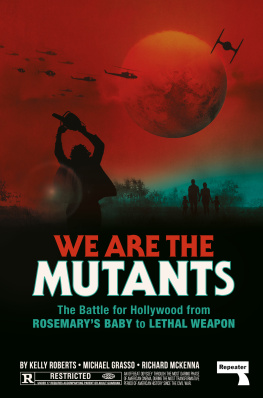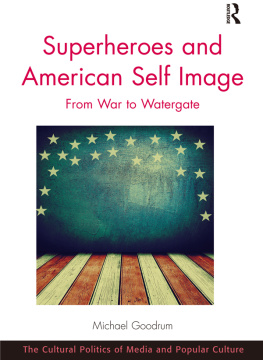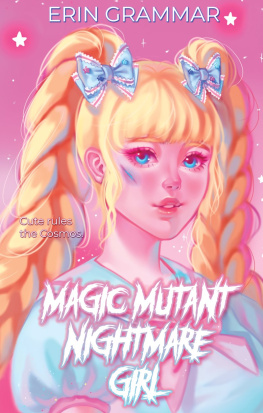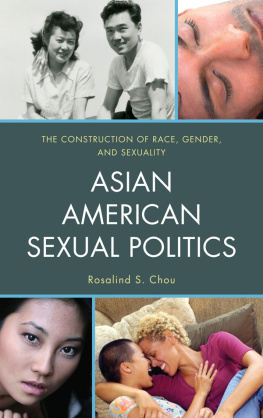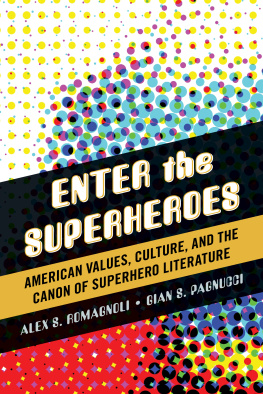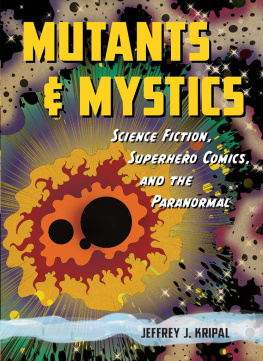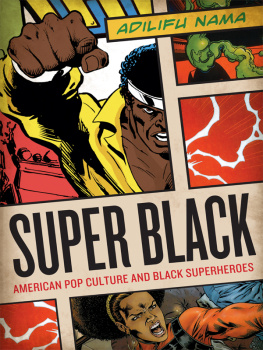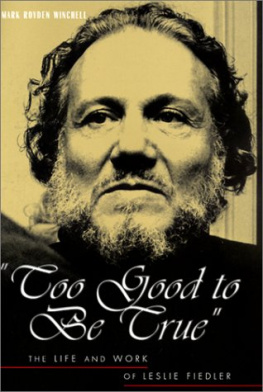The New Mutants
Superheroes and the Radical Imagination of American Comics
Ramzi Fawaz
New York University Press
New York and London
New York University Press
New York and London
www.nyupress.org
2015 by New York University
All rights reserved
Library of Congress Cataloging-in-Publication data
Fawaz, Ramzi.
The new mutants : superheroes and the radical imagination of American comics / Ramzi Fawaz.
pages cm
Includes bibliographical references and index.
ISBN 978-1-4798-1433-6 (cl : alk. paper) ISBN 978-1-4798-2308-6 (pb : alk. paper)
1. Comic books, strips, etcUnited StatesHistory and criticism. 2. Superheroes in literature. I. Title.
PN6725.F37 2015
741.5'973dc23
2015021427
References to Internet websites (URLs) were accurate at the time of writing Neither the author nor New York University Press is responsible for URLs that may have expired or changed since the manuscript was prepared.

A book in the American Literatures Initiative (ALI), a collaborative publishing project of NYU Press, Fordham University Press, Rutgers University Press, Temple University Press, and the University of Virginia Press. The Initiative is supported by The Andrew W. Mellon Foundation. For more information, please visit www.americanliteratures.org.
For
Roula, Kathy, Melani, and Robert,
my Fantastic Four.
The myth... of Science Fiction... is quite simply the myth of the end of man, of the transcendence or transformation of the humana vision... of radical transformation (under the impact of advanced technology and the transfer of traditional human functions to machines) of homo sapiens into something else: the emergenceto use the language of Science Fiction itselfof mutants among us.
L ESLIE F IEDLER, The New Mutants (1965)
Mr. Fantastic: There was another Human Torch... a much older one... more than 20 years ago!... He was amazing! There seemed to be nothing he couldnt do with that flaming body of his. But, there were rumors that he wasnt fully human!
The Thing: Nowadays, who is??
F ANTASTIC F OUR Annual #4 (November 1966)
Contents
I read my first comic book when I was thirteen, during the summer between seventh and eighth grade. It was the Thirty-fifth Anniversary issue of The Uncanny X-Men, Americas most popular superhero comic, which, for over three decades, had narrated the lives, loves, and losses of a band of mutant outcasts gifted with extraordinary abilities because of a difference in their genetic makeup. Even back then I was spectacularly gay and exceptionally bookish, not to mention loud about both. I was a mutant in suburban Orange County, California. These qualities had made middle school a nightmare and life lonely. But that summer day, returning home exhilarated by the sights of the local comic book store, I sat by the family pool, slipped my X-Men issue from its bag, and carefully opened the dazzling holographic cover; what I discovered there has kept me dreaming and made life far, far less lonely ever since. This book is one outcome of that encounter, but it is even more a product of the crossings, friendships, and bonds that my thirteen-year-old self could only wish for and my adult self has been lucky enough to live.
This book is dedicated to four people without whom it would not exist. My mama, Roula Fawaz, is everything to me. She survived a war zone, emigrated with her family to a new country, dared to pursue the lifestyle that sustained her, and built a thriving business from the ground up, all so that her children could live their dreams. She did all this with unconditional love. Your spirit is all over this book, Mama, just my version of it. I met Kathleen Moran as a sophomore at UC Berkeley on the first day of her course on the 1980s. Ten minutes into a lecture on Back to the Future and Reaganism, I knew she was going to change my life. Kathy introduced me to the study of popular culture, convinced me I could take comics seriously as scholarly objects, and believed in me enough to let me teach in Berkeleys American studies program as a very green twenty-one-year-old. Because of her, American studies became my lifes work. Kathy was first my mentor and is now family. After leaving Berkeley I couldnt have dreamed that Id find mentors as extraordinary and inspiring. In Melani McAlister and Robert McRuer, I did. From the moment I met her, Melani has challenged me to be the most rigorous and exacting scholar I can imagine, provided me with love, support, and insight to last a lifetime, and has modeled a form of intellectual generosity I aspire to every day. In case you were wondering, shes my favorite superhero. Robert McRuer is my other favorite. He has always modeled for me what it means to live ones intellectual values as an ethics, to be bold, experimental, and epic with my ideas, and to remember to pursue intellectual life with as much playfulness as rigor (which he might say are the same thing). Each in their own voice, these four have always told me Go ahead.
This book began as an undergraduate dream research project at UC Berkeley. My mentors Mark Brilliant, Carol Clover, Kevis Goodman, Richard Hutson, Greil Marcus, Christine Palmer, Carolyn Porter, and Hertha D. Sweet Wong shared with me more of their brilliance, generosity, guidance, and support than any undergraduate could ever hope for. What I learned from them could fill another book, or two. Im honored now to count them as my friends and colleagues. The intellectual and social community of George Washington Universitys American Studies Department is unparalleled. It was my absolute fortune to spend the six years of my doctoral study there. At GW, I want to especially thank Tom Guglielmo, the late Jim Miller, and Jennifer Nash for their friendship and their tireless support of my scholarship and my career. Elisabeth Anker and Kip Kosek were the most incisive and generous committee members one could hope for. Julie Passanante Elman was the first graduate student I met at GW, when she was starting to write her dissertation proposal. (Its now a book.) She has been mababaay! ever sincean extraordinary intellect, true friend, and all-around Amazon warrior. Sandra Heard was a constant source of inspiration, laughter, and strength (she still is), and Stephanie Schulte was my role model of the scholar I wanted to become (she still is). Laura Cook Kenna, David Kieran, Laurel Clark Shire, and Kevin Strait always led the way.


